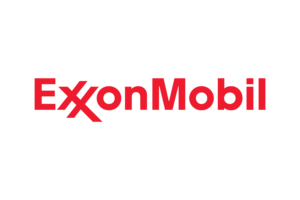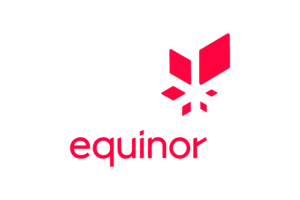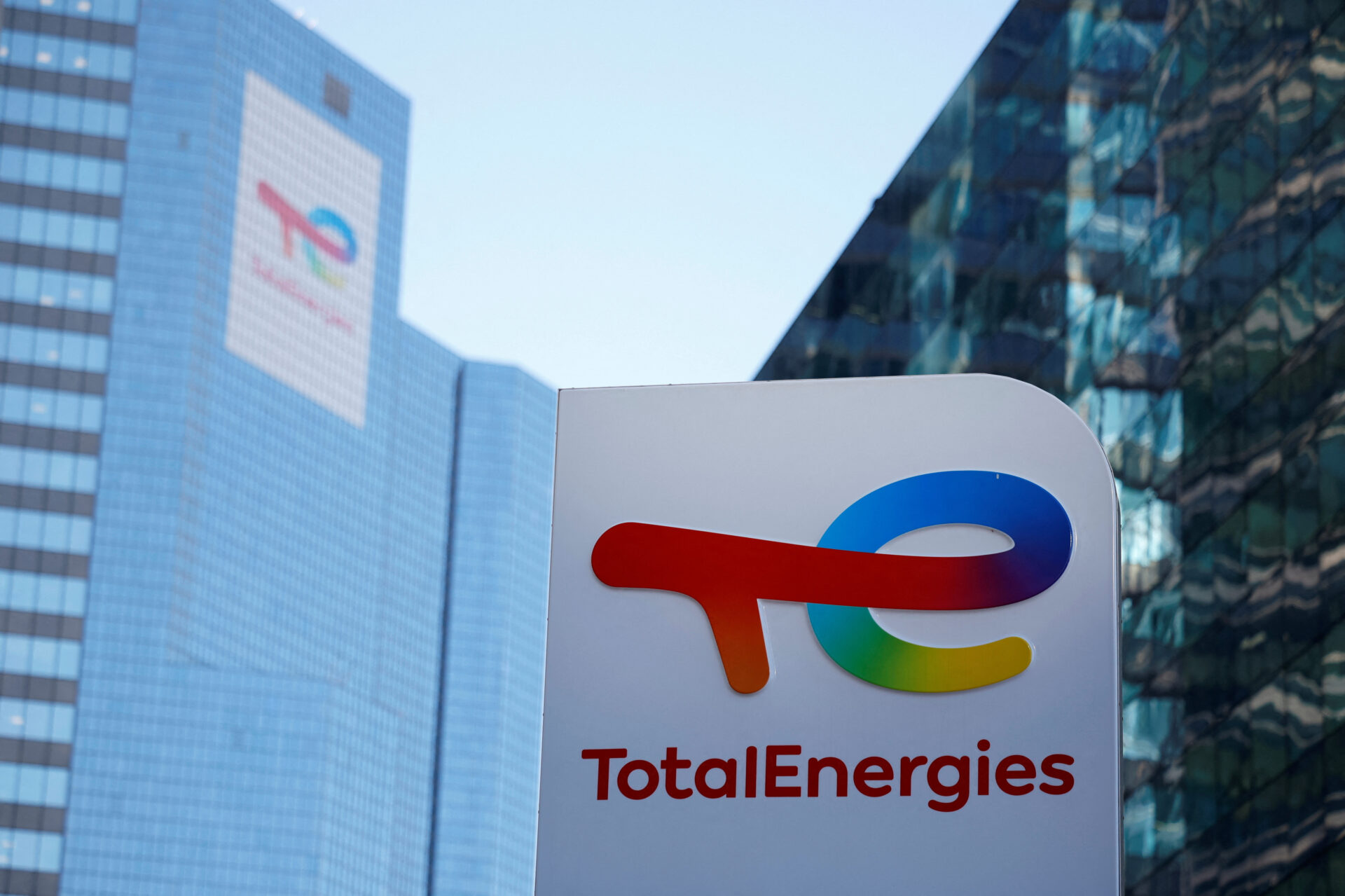TotalEnergies SE is a French multinational integrated energy and petroleum company, one of the seven “Supermajor” oil companies in the world. Founded in 1924, TotalEnergies has evolved over nearly a century to become a major player in the global energy sector, with operations spanning across 130 countries. The company’s headquarters are in Courbevoie, France.
The journey of TotalEnergies began as Compagnie Française des Pétroles (CFP), created to exploit oil reserves in the Middle East. Over the decades, CFP expanded its operations through strategic acquisitions and mergers, becoming Total CFP in 1985 and later simply Total. In 1999, Total merged with Belgian oil company Petrofina, becoming TotalFina, and in 2000, it merged with French oil company Elf Aquitaine, adopting the name TotalFinaElf. In 2003, it reverted to Total SA, and in 2021, reflecting its broader energy ambitions, it rebranded to TotalEnergies.
TotalEnergies is not just an oil and gas company but an integrated energy company that is diversifying into renewable energies, natural gas, and electricity. The company’s operations are structured into four business segments: Exploration & Production, Integrated Gas, Renewables & Power, Refining & Chemicals, and Marketing & Services.
This segment focuses on the exploration, development, and production of oil and natural gas. TotalEnergies has a strong presence in major hydrocarbon-producing regions, including the Middle East, Africa, the North Sea, and the Americas. The company’s exploration activities are geared towards discovering new reserves to replace production and sustain growth. It is also involved in unconventional oil and gas projects, including shale gas, which have become increasingly important.
TotalEnergies aims to become a world leader in the energy transition, reducing its carbon footprint and shifting towards cleaner energy sources. This segment manages the company’s natural gas, liquefied natural gas (LNG), and renewable energy operations. TotalEnergies is one of the top global players in LNG, which is a critical component of the company’s strategy to provide more environmentally friendly energy solutions. The company is also investing heavily in renewable energy projects, including solar, wind, and battery storage, aiming to generate 35 GW of renewable energy capacity by 2025 and 100 GW by 2030.
This segment involves refining crude oil and natural gas into refined products, including gasoline, diesel, and petrochemicals. TotalEnergies operates refineries and petrochemical plants worldwide, producing a wide range of products used in various industries, from automotive to consumer goods. The company is also focused on developing biofuels and bioplastics as part of its sustainability strategy.
TotalEnergies’ Marketing & Services segment is responsible for the distribution and sale of refined products and services. The company has a vast network of service stations, lubricants, and specialty products distributed globally. It also provides aviation and marine fuels, bitumen, and other services, ensuring a robust presence in downstream operations.
TotalEnergies is committed to reducing its carbon footprint and becoming a net-zero emissions company by 2050. The company is investing in innovative technologies and projects that support the energy transition, such as carbon capture and storage (CCS), hydrogen production, and electric vehicle (EV) charging infrastructure. TotalEnergies is also involved in various sustainability initiatives, including improving energy efficiency, reducing methane emissions, and enhancing biodiversity.
TotalEnergies is one of the largest companies in the world by revenue. In 2022, the company reported revenues of $205.8 billion and a net income of $13.7 billion. The company’s strong financial performance is supported by its diversified energy portfolio, strategic investments, and operational efficiency. TotalEnergies’ market position is further strengthened by its integrated business model, which allows it to capture value across the entire energy value chain, from upstream production to downstream marketing.
TotalEnergies places a high emphasis on corporate social responsibility (CSR). The company is actively engaged in various community and environmental programs worldwide. Its CSR initiatives focus on education, healthcare, and environmental protection, reflecting its commitment to contributing positively to the communities where it operates.
Under the leadership of Chairman and CEO Patrick Pouyanné, TotalEnergies has set a strategic vision to transition towards a sustainable energy future. The company’s ambition is to become a world-class player in the energy transition, providing reliable, affordable, and clean energy. This vision is driven by TotalEnergies’ belief in the importance of addressing climate change and meeting the growing global energy demand sustainably.

In conclusion, TotalEnergies is a dynamic and forward-thinking energy company with a rich history and a strong commitment to sustainability and innovation. Its integrated business model, strategic investments in renewable energy, and focus on reducing its carbon footprint position it as a leader in the global energy transition. As the world moves towards cleaner energy solutions, TotalEnergies is poised to play a crucial role in shaping the future of the energy industry.
Top Competitors of TotalEnergies
TotalEnergies faces competition from several major players in the global energy sector. These competitors span across various segments including oil and gas production, renewable energy, and energy trading. Here’s a detailed exploration of TotalEnergies’ key competitors:
1. ExxonMobil

Website – https://corporate.exxonmobil.com/
ExxonMobil is a formidable competitor to TotalEnergies due to its integrated operations and global reach. ExxonMobil’s strength lies in its extensive vertical integration across the oil and gas value chain, from exploration and production (upstream) to refining and chemicals (downstream). This integration allows ExxonMobil to optimize operations, manage costs efficiently, and maintain robust profitability across varying market conditions. Furthermore, ExxonMobil’s substantial investments in technological innovation, particularly in enhancing oil recovery techniques and developing advanced chemical products, position it strongly against TotalEnergies. While TotalEnergies also boasts an integrated model and significant technological prowess, ExxonMobil’s scale and depth in these areas provide a competitive edge.
Additionally, ExxonMobil’s financial stability and strong cash flow generation bolster its competitive stance. The company’s ability to generate significant revenue, evidenced by its $344.6 billion in revenue for 2023, supports continuous investment in growth and development projects, including sustainable energy initiatives. ExxonMobil’s global presence, with extensive operations in North America, Asia, and other key regions, ensures diversified revenue streams and market influence. While TotalEnergies is equally global and committed to sustainability, ExxonMobil’s scale, financial power, and extensive research and development capabilities give it a notable advantage in competing within the energy sector.
Summary Table:
| Aspect | ExxonMobil | TotalEnergies |
|---|---|---|
| Revenue (2023) | $344.6 Billion | $237.13 billion |
| Employees | 62,000 | Over 100,000 |
| Key Strengths | Integrated operations, technological innovation, financial stability | Integrated energy company, renewable energy focus, global reach |
| Global Presence | Extensive operations in North America, Asia, and other key regions | Extensive global operations, balanced portfolio |
| Technological Innovation | Advanced oil recovery techniques, chemical product development | Significant investments in renewable energy, advanced energy solutions |
| Sustainability Initiatives | Investment in sustainable energy, carbon capture projects | Strong commitment to renewable energy and sustainability |
2. Royal Dutch Shell

Website – https://www.shell.com/
Royal Dutch Shell is a strong competitor to TotalEnergies due to its diversified energy portfolio and significant investments in renewable energy. Shell’s strength lies in its extensive and diversified operations across both traditional and renewable energy sectors, which include oil and gas exploration, production, refining, and a growing focus on clean energy solutions such as wind, solar, and hydrogen. This diversification allows Shell to mitigate risks associated with market volatility in any single energy sector, positioning it as a resilient competitor. While TotalEnergies also invests heavily in renewables, Shell’s established presence and broader reach in clean energy give it a competitive advantage.
Furthermore, Shell’s strong financial performance and strategic sustainability initiatives enhance its competitive stance against TotalEnergies. In 2023, Shell reported revenues of $316.62 billion, reflecting its robust ability to generate significant cash flow to reinvest in both its traditional and renewable energy projects. Shell’s commitment to sustainability is evident through its ambitious goals to become a net-zero emissions energy business by 2050, which includes significant investments in carbon capture and storage technologies. This commitment to sustainability, combined with a broad global presence and diversified energy operations, positions Shell as a formidable competitor to TotalEnergies, which is also focused on transitioning to renewable energy and reducing its carbon footprint.
Summary Table:
| Aspect | Royal Dutch Shell | TotalEnergies |
|---|---|---|
| Revenue (2023) | $316.62 billion | $237.13 billion |
| Employees | 87,000 | Over 100,000 |
| Key Strengths | Diversified energy portfolio, significant investments in renewable energy | Integrated energy company, renewable energy focus, global reach |
| Global Presence | Operations in over 70 countries | Extensive global operations in over 130 countries |
| Sustainability Initiatives | Ambitious net-zero goals, investments in carbon capture and storage | Strong commitment to renewable energy and sustainability |
| Technological Innovation | Investments in advanced renewable energy technologies | Advanced energy solutions and renewable energy projects |
3. BP (British Petroleum)

Website – https://www.bp.com/
BP (British Petroleum) stands as a formidable competitor to TotalEnergies due to its diverse energy portfolio and strategic focus on renewable energy transition. BP’s strength lies in its ambitious commitment to becoming a net-zero company by 2050, with substantial investments in renewable energy projects including wind, solar, and bioenergy. This commitment is demonstrated by BP’s plan to increase its renewable energy capacity to 50 gigawatts by 2030. While TotalEnergies also prioritizes renewable energy, BP’s clear and aggressive targets in expanding its green energy footprint provide it with a competitive edge in the evolving energy market. Additionally, BP’s strong presence in the global energy market, particularly in the United States and Europe, allows it to leverage its extensive infrastructure and market influence to advance its sustainability goals effectively.
Moreover, BP’s financial strength and technological innovation enhance its competitive position against TotalEnergies. In 2023, BP generated $210.13 billion in revenue, reflecting its robust ability to fund large-scale renewable projects and technological advancements. BP is also heavily investing in innovative technologies, such as carbon capture, utilization, and storage (CCUS) and hydrogen energy solutions, which are critical to achieving its net-zero ambitions. These investments align with global efforts to reduce carbon emissions and transition to cleaner energy sources. While TotalEnergies is similarly committed to sustainability and innovation, BP’s focused approach on specific technologies and its strategic investments position it as a strong competitor in the energy sector, challenging TotalEnergies’ market share and influence.
Summary Table:
| Aspect | BP (British Petroleum) | TotalEnergies |
|---|---|---|
| Revenue (2023) | $210.13 billion | $237.13 billion |
| Employees | Approximately 70,100 | Over 100,000 |
| Key Strengths | Ambitious net-zero targets, substantial investments in renewable energy | Integrated energy company, renewable energy focus, global reach |
| Global Presence | Strong presence in the US and Europe, extensive infrastructure | Extensive global operations in over 130 countries |
| Sustainability Initiatives | Net-zero by 2050, investments in CCUS and hydrogen | Strong commitment to renewable energy and sustainability |
| Technological Innovation | Leading in carbon capture and hydrogen energy technologies | Advanced energy solutions and renewable energy projects |
4. Chevron

Website – https://www.chevron.com/
Chevron is a significant competitor to TotalEnergies due to its strong upstream operations and robust financial stability. Chevron’s strength lies in its efficient and high-production upstream oil and gas operations, particularly in regions like the Permian Basin in the United States and major projects in Australia and Kazakhstan. This focus on upstream activities allows Chevron to maximize its production capabilities and maintain a steady supply of oil and gas, contributing to its strong financial performance. While TotalEnergies also has extensive upstream operations, Chevron’s efficiency and scale in these regions provide a competitive advantage, especially in terms of production costs and output.
Moreover, Chevron’s financial stability and commitment to sustainability enhance its competitive position against TotalEnergies. In 2023, Chevron reported revenues of $196.91 billion, demonstrating its ability to generate significant cash flow to fund ongoing and future projects. Chevron is also investing in renewable energy and technologies aimed at reducing its carbon footprint, such as carbon capture, utilization, and storage (CCUS) and renewable natural gas. Although TotalEnergies is similarly committed to sustainability and the energy transition, Chevron’s strong balance sheet and strategic investments in clean energy technologies position it as a formidable competitor. Chevron’s global presence, coupled with its financial strength and innovative approaches, ensures it remains a key player in the global energy market.
Summary Table:
| Aspect | Chevron | TotalEnergies |
|---|---|---|
| Revenue (2023) | $196.91 billion | $237.13 billion |
| Employees | About 47,736 | Over 100,000 |
| Key Strengths | Efficient high-production upstream operations, financial stability | Integrated energy company, renewable energy focus, global reach |
| Global Presence | Strong operations in the US, Australia, Kazakhstan | Extensive global operations in over 130 countries |
| Sustainability Initiatives | Investments in CCUS and renewable natural gas | Strong commitment to renewable energy and sustainability |
| Technological Innovation | Leading in carbon capture and upstream efficiency | Advanced energy solutions and renewable energy projects |
5. Equinor (formerly Statoil)

Website – https://www.equinor.com/
Equinor, formerly known as Statoil, is a prominent competitor to TotalEnergies, primarily due to its expertise in offshore oil and gas production and significant investments in renewable energy. Equinor’s strength lies in its leading capabilities in offshore oil and gas exploration and production, especially in the North Sea, where it has been a dominant player for decades. This extensive experience and technological prowess in harsh offshore environments enable Equinor to maintain high efficiency and production levels. While TotalEnergies also has a strong presence in offshore operations, Equinor’s specialized expertise in this area gives it a distinct competitive edge.
Moreover, Equinor’s strategic focus on renewable energy and sustainability initiatives bolsters its competitive stance against TotalEnergies. Equinor is committed to becoming a net-zero energy company by 2050 and is actively investing in offshore wind farms, solar energy projects, and hydrogen technology. In 2023, Equinor’s revenue was $107.2 billion, reflecting its strong financial foundation to support these ambitious goals. TotalEnergies similarly prioritizes renewable energy, but Equinor’s aggressive targets and investments in pioneering technologies like floating wind turbines and large-scale hydrogen production enhance its position as a leading energy transition company. Equinor’s balanced approach between traditional energy sources and innovative renewable solutions positions it as a formidable competitor to TotalEnergies in the evolving global energy market.
Summary Table:
| Aspect | Equinor | TotalEnergies |
|---|---|---|
| Revenue (2023) | $107.2 billion | $237.13 billion |
| Employees | Around 21,245 | Over 100,000 |
| Key Strengths | Offshore oil and gas expertise, renewable energy investments | Integrated energy company, renewable energy focus, global reach |
| Global Presence | Strong operations in the North Sea and global offshore projects | Extensive global operations in over 130 countries |
| Sustainability Initiatives | Net-zero by 2050, investments in offshore wind, solar, and hydrogen | Strong commitment to renewable energy and sustainability |
| Technological Innovation | Leading in offshore wind and floating turbines, hydrogen technology | Advanced energy solutions and renewable energy projects |
6. Eni

Website – https://www.eni.com/en-IT/home.html
Eni, the Italian multinational oil and gas company, is a strong competitor to TotalEnergies due to its integrated operations and significant investments in renewable energy. Eni’s strength lies in its diversified operations across the entire energy value chain, from exploration and production to refining and marketing. This comprehensive integration allows Eni to optimize efficiencies, manage costs effectively, and maintain robust profitability. Additionally, Eni has a solid presence in several key regions, including Europe, Africa, and the Middle East, which ensures a balanced and diversified revenue stream. While TotalEnergies also boasts an integrated model, Eni’s strategic regional presence and operational efficiency provide a notable competitive edge.
Moreover, Eni’s commitment to sustainability and renewable energy projects enhances its competitive position against TotalEnergies. Eni has set ambitious goals to become carbon neutral by 2050, with substantial investments in solar, wind, and biofuel projects. The company is actively involved in several large-scale renewable energy initiatives, including the development of green hydrogen and advanced bio-refineries. In 2023, Eni reported revenues of $102.6 billion, underlining its capacity to support and expand its renewable energy portfolio. While TotalEnergies similarly emphasizes sustainability and renewable investments, Eni’s aggressive targets and innovative projects, such as the conversion of traditional refineries into bio-refineries, underscore its competitive advantage in the energy transition landscape.
Summary Table:
| Aspect | Eni | TotalEnergies |
|---|---|---|
| Revenue (2023) | $103.6 billion | $237.13 billion |
| Employees | Around 32,689 | Over 100,000 |
| Key Strengths | Integrated operations, strong regional presence | Integrated energy company, renewable energy focus, global reach |
| Global Presence | Significant operations in Europe, Africa, and the Middle East | Extensive global operations in over 130 countries |
| Sustainability Initiatives | Carbon neutrality by 2050, investments in solar, wind, biofuels | Strong commitment to renewable energy and sustainability |
| Technological Innovation | Development of green hydrogen and advanced bio-refineries | Advanced energy solutions and renewable energy projects |
7. Repsol

Website – https://www.repsol.com/en/index.cshtml
Repsol is a significant competitor to TotalEnergies due to its strong downstream operations and commitment to innovation in renewable energy. Repsol’s strength lies in its extensive refining and marketing capabilities, which allow it to maintain a strong presence in the downstream segment of the energy market. The company operates one of the largest refining systems in Europe, ensuring a steady and efficient supply of petroleum products. This extensive infrastructure supports Repsol’s ability to manage market fluctuations and maintain profitability. While TotalEnergies also has a comprehensive downstream presence, Repsol’s efficiency and scale in refining and marketing provide a competitive advantage.
Additionally, Repsol’s proactive approach to sustainability and renewable energy projects enhances its competitive position against TotalEnergies. Repsol has set ambitious targets to become a net-zero emissions company by 2050, with significant investments in renewable energy sources such as wind, solar, and biofuels. The company is also involved in innovative projects like the production of advanced biofuels and synthetic fuels, which are crucial for reducing carbon emissions in the transportation sector. In 2023, Repsol reported revenues of $63.9 billion, highlighting its robust financial foundation to support these initiatives. While TotalEnergies also emphasizes sustainability, Repsol’s focused approach on advanced biofuels and synthetic fuels underscores its competitive edge in the transition to a low-carbon economy.
Summary Table:
| Aspect | Repsol | TotalEnergies |
|---|---|---|
| Revenue (2023) | $63.9 billion | $237.13 billion |
| Employees | Around 25,000 | Over 100,000 |
| Key Strengths | Extensive refining and marketing capabilities, innovative renewable energy projects | Integrated energy company, renewable energy focus, global reach |
| Global Presence | Strong presence in Europe and Latin America | Extensive global operations in over 130 countries |
| Sustainability Initiatives | Net-zero by 2050, investments in wind, solar, biofuels | Strong commitment to renewable energy and sustainability |
| Technological Innovation | Advanced biofuels, synthetic fuels | Advanced energy solutions and renewable energy projects |




